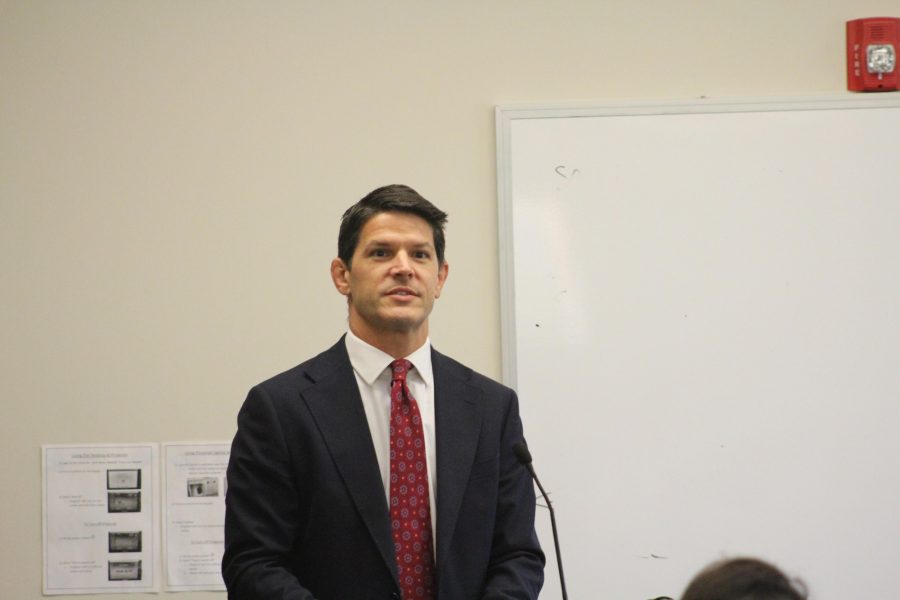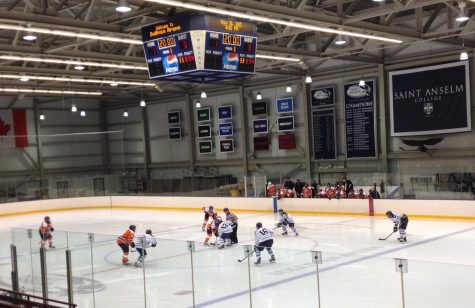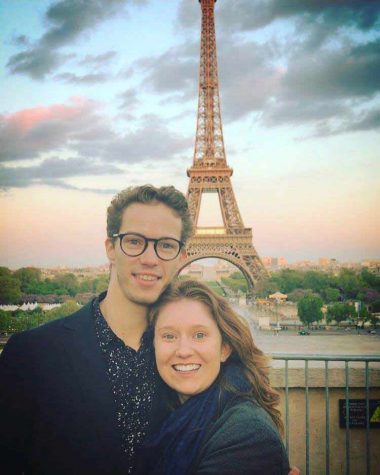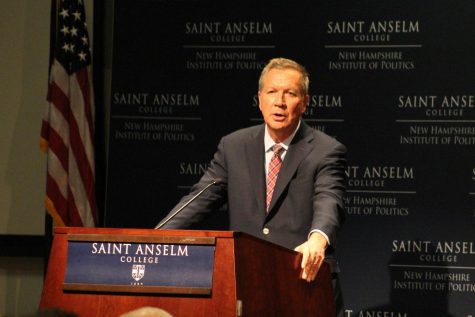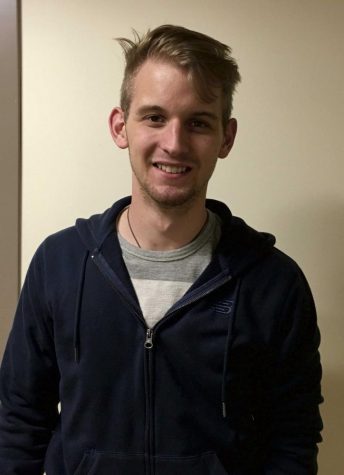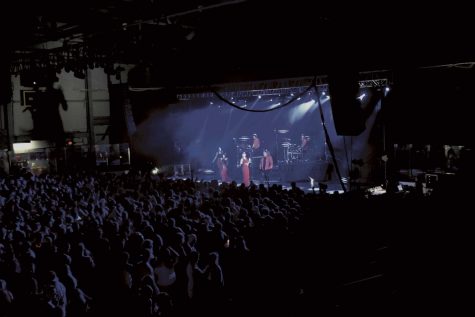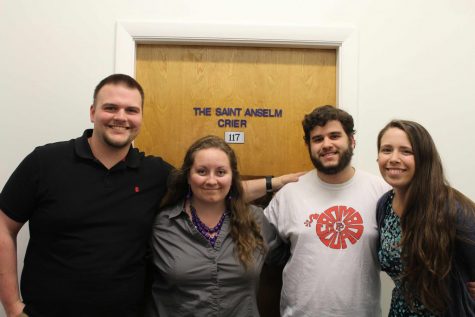‘Catholic and Voting’ event addresses concerns of Catholic voters
October 19, 2016
The 2016 presidential election presents many issues for Catholic voters. On Oct. 6, a panel of three members of the college community—Christine Gustafson, Associate Dean for Faculty and associate professor of politics, Fr. Benedict Guevin O.S.B., and Tauna Sisco, associate professor of sociology—addressed the convergence of faith commitments, religion, and civic engagement. The panel was moderated by Bede Bidlack, associate professor of theology.
Alexis Grace Richard ’19 gave the opening remarks to the full room. She thanked the sponsors of the event, the Theology Department, Sociology Department, Politics Department, Council on Being Catholic and Benedictine, and Campus Ministry.
Fr. Benedict Guevin began by discussing the role of Catholics in this election and their duty to vote. He described the race for the White House as more about the candidates’ personalities and less about their policies. Although each candidate has vastly different visions for the country, Catholics still have a civic responsibility.
“As Catholics, we have moral obligations to vote under the virtue of justice,” said Fr. Benedict. “We must participate in civic life to the extent we are able. It’s how you move from religious convictions to voting that is often the issue.”
Fr. Benedict suggested, “You should pray, follow your conscience, and vote. There will never be a perfect candidate, so in the privacy of your heart and the voting booth, you make your decision.”
Next, Christine Gustafson used her specialty as a political scientist in her approach to the panel. She described how Catholics have voted historically. Until Roe v. Wade, the Catholic vote was for the Democratic candidate in majority; however, after the Supreme Court decision Catholics are a swing vote, typically split down the middle.
“Citizenship duties as Catholics are very challenging,” said Gustafson. “But they are duties. We are called to discuss, participate, and contribute to society. As Americans, we have a duty to the world, not just our country.”
According to Gustafson, this election can help Catholics to better understand how to approach these duties. One must balance individual interest and the common good. To make informed and moral decisions, says Gustafson, “We must engage in intercultural dialogue. We are called to hope and to use our reason and faith to guide us, even in uncomfortable and complicated situations.”
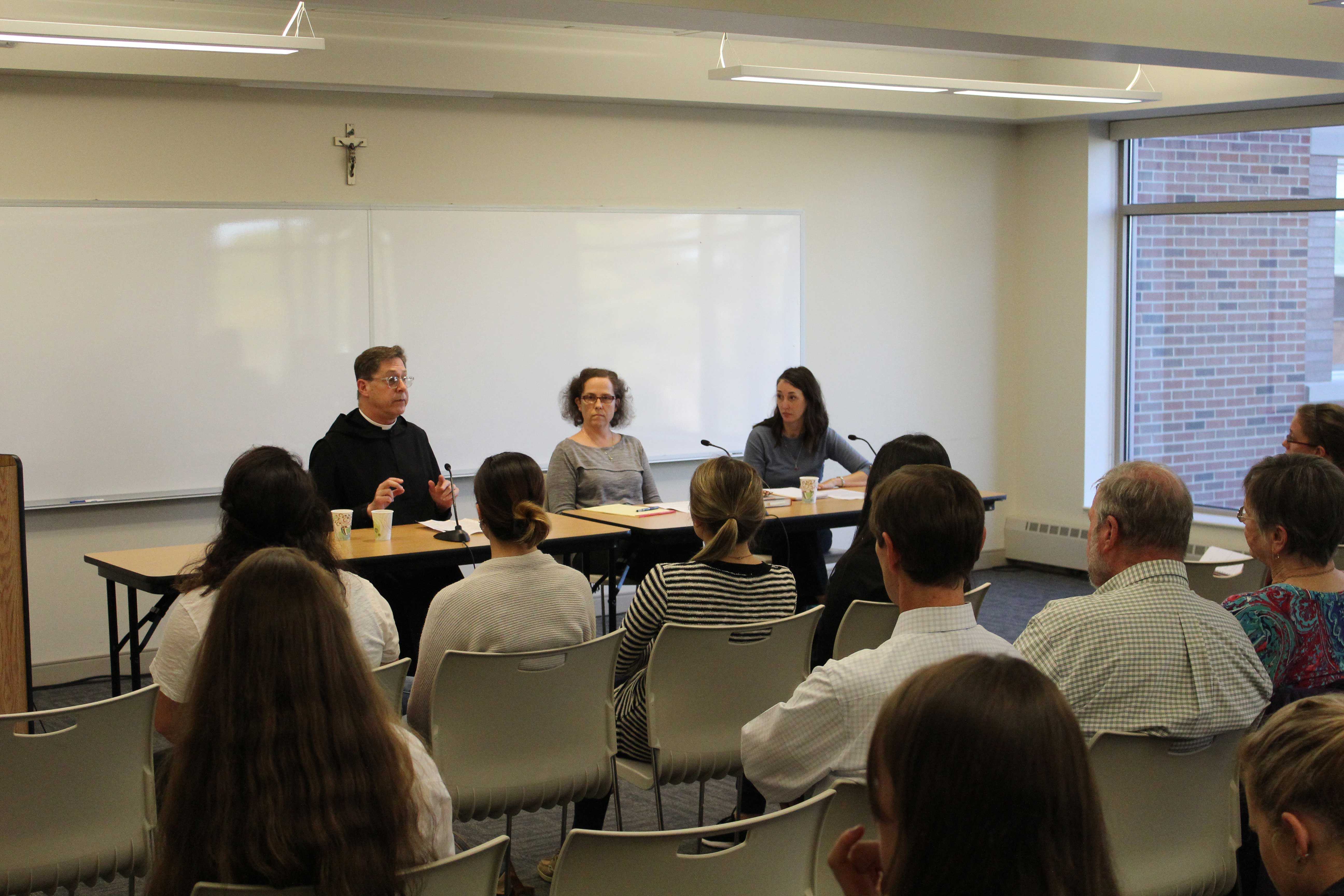
Panelists Fr. Benedict Guevin, O.S.B., Dean Christine Gustafson, and Professor Tauna
Sisco discuss the Catholic’s moral obligation to vote.
Last, Tauna Sisco shared her insight as a political sociologist. She began by describing an interaction between Pope Francis and John Jeremiah Sullivan, a reporter from the New York Times Magazine. Sullivan asked the pope, “How would you counsel the faithful in America and what wisdom would you have them keep in mind next month when the election occurs?”
Pope Francis answered, “You pose me a question where you describe a difficult choice, because, according to you, you have difficulty in one and you have difficulty in the other. In electoral campaigns, I never say a word. The people are sovereign. I’ll just say a word: Study the proposals well, pray and choose in conscience.”
The pope continued, “Then, I’ll leave the issue and I speak of a fiction, because I don’t want to speak to this concrete issue. When it happens that in whatever country here are two, three, four candidates that no one likes, that means that the political life of the nation perhaps is too politicized but perhaps it doesn’t have that much politics. And, one of the jobs of the church, also in the teaching in the (university) faculties, is teaching to have political culture.”
After the pope’s insight, Sisco discussed discernment, political culture, and social justice in a layered context. She suggested, “Take time to go through policies and reflect on them. What is the benefit to both us and the other? After this, the most important thing to do is to pray.”
Questions followed from the audience about how to prioritize domestic and international issues, voters who vote on a single issue, why voting is necessary, and the value of a candidate’s character.
Olivia Thornburg ’18 voiced her concern about news outlets and the buzz she hears in the media each day. She asked, “How have you learned what sources and opinions to listen to?”
“We need to be critical consumers of information,” answered Sisco. “Many are misinformed by many news sources. Look at policies and voting records. These speak to the actions of the candidates.”
Susan Gabert, director of Campus Ministry, concluded the panel commenting on the value of paying attention to local policies and other ways to be civically engaged.



